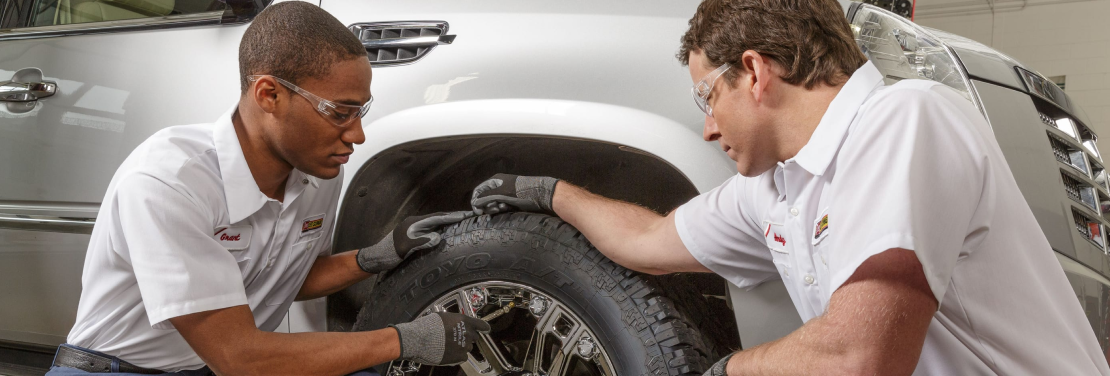Conserve Big with Mopar Tire Service Specials in Morris: Limited Time Uses
Conserve Big with Mopar Tire Service Specials in Morris: Limited Time Uses
Blog Article
Tire Service: Comprehending Tire Stress Surveillance Equipments
Understanding Tire Stress Monitoring Equipments (TPMS) is a crucial element of preserving ideal vehicle performance and security on the roadway. With advancements in vehicle modern technology, TPMS has actually ended up being a common function in contemporary vehicles, providing real-time information on tire pressure degrees.

Importance of TPMS
The relevance of Tire Stress Tracking Solutions (TPMS) depends on their capacity to boost vehicle security and performance with real-time tracking of tire pressure degrees. Maintaining the appropriate tire pressure is critical for guaranteeing optimal handling, stopping, and total safety and security of a vehicle. TPMS provides vehicle drivers with immediate feedback on any type of underinflated or overinflated tires, permitting prompt modifications to be made.
Components of TPMS
Sensing units are generally situated in the tire valve stem or connected to the wheel assembly, where they gauge tire stress and transmit information to the control module. Some advanced TPMS models likewise display the real tire stress readings for each tire, supplying vehicle drivers with real-time information to ensure ideal tire performance and safety and security. By keeping an eye on tire stress constantly, TPMS aids avoid mishaps, minimizes tire wear, and enhances fuel performance, making it an essential component for automobile safety and security and performance. tire shop morris.
Sorts Of TPMS

On the other hand, indirect TPMS counts on the vehicle's wheel rate sensing units to keep track of tire pressure. This system identifies underinflation by contrasting the rotational speeds of the wheels. Indirect TPMS is much less pricey than direct TPMS, as it makes use of existing sensing units within the car.
While straight TPMS provides extra precise analyses, indirect TPMS is less complex in layout and commonly needs much less upkeep. Both systems have their benefits and restrictions, and the choice in between them commonly depends upon elements such as price, lorry make, and personal preference. Comprehending the distinctions in between these 2 kinds of TPMS can assist automobile proprietors make educated choices relating to tire upkeep and security.
TPMS Maintenance Tips
Effective upkeep of TPMS see this page is important for making sure optimal performance and safety and security of your lorry. Frequently inspecting the TPMS sensing units for any type of damage or corrosion is vital. Ensure that the sensors are cost-free and clean from debris that can disrupt their performance. In addition, it is a good idea to check the sensing unit batteries regularly and replace them as needed to assure accurate analyses. Conduct routine checks on the tire pressure levels and contrast them with the TPMS readings to ensure they correspond. If there are any kind of inconsistencies, rectify the system adhering to the producer's guidelines. Additionally, during tire turning or substitute, ensure that the TPMS components are handled meticulously to avoid any type of prospective damage. If the TPMS alerting light brightens on the control panel, deal with the issue promptly by examining the tire pressures and the overall system for any kind of mistakes. By adhering to these maintenance pointers, you can lengthen the life-span of your TPMS and boost the safety and security of your driving experience.
Benefits of Appropriate Tire Pressure
Preserving appropriate tire pressure, as highlighted in TPMS Maintenance Tips, is vital for sites reaping the many advantages connected with ideal tire stress levels. Among the primary benefits of keeping the correct tire stress is improved fuel efficiency. When tires are properly blown up, there is less rolling resistance, bring about better fuel economic climate. In addition, correct tire pressure guarantees also tire wear, expanding the life expectancy of the tires and advertising more secure driving problems. With the best tire stress, vehicles likewise have much better handling and traction, particularly in unfavorable weather. This can enhance general driving performance and safety for the chauffeur and travelers. Preserving optimal tire stress can contribute to a smoother and extra comfortable ride by minimizing vibrations and sound created by underinflated tires. To conclude, the advantages of correct tire stress go beyond simply tire longevity; they incorporate boosted gas effectiveness, improved safety, far better vehicle performance, and general driving convenience.
Verdict
In verdict, recognizing tire pressure surveillance systems (TPMS) is critical for keeping optimal tire stress and making sure lorry safety. By recognizing the value of TPMS, being familiar with its components, knowing the various types available, sticking to correct upkeep ideas, and recognizing the benefits of keeping proper tire stress, chauffeurs can enhance their driving experience and extend the life expectancy of their tires. Appropriate tire stress is key to safe and reliable vehicle operation.

Report this page